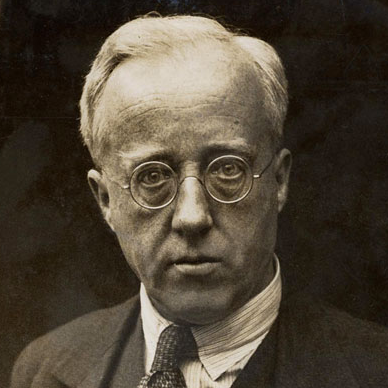
Holst
Born: 1874
Died: 1934
Gustav Holst
Think of Holst and you think of The Planets. Not much else springs to mind and, indeed, his output is comparatively slender – he was a slow starter and a slow worker – and few of his works were performed in his lifetime. He wrote much else of interest, yet The Planets is such an overwhelming, original work that everything else pales into insignificance in scale and concept.
Gustav Holst: Beyond The Planets
Not only do we underestimate Holst’s signature work, Sir Andrew Davis tells John von Rhein, but there’s so much more to discover... Read the article
Gustav von Holst’s paternal great-grandfather settled in England from Sweden in 1807. His father was an organist, his mother a piano teacher, but when he went to study at the Royal College of Music in 1893 it was the trombone that became his main instrument (he was a pupil of Stanford for composition). Vaughan Williams was a fellow student and became a lifelong friend. At first he earned his living as a trombonist with various theatre and opera companies before changing course in 1905 and becoming a teacher at St Paul’s Girls’ School and, two years later, at Morley College, both in London. They were positions he held for the rest of his life.
His early work is dominated by the influence of Wagner, then tempered by his interest in religious philosophy, the mysticism, poetry and spiritualism of the East, and the English folk music to which Vaughan Williams had introduced him. By 1915 he’d ‘gone through’ these influences, absorbed them and arrived at a voice of his own. During the First World War, plagued by suspicions of German sympathies because of his German-sounding name, he dropped the ‘von’ and went out to Salonica and Constantinople to organise concerts for the British troops. The Planets, written between 1914 and 1916, had to wait until 1920 for its first complete public performance but it established his name as a leading composer.
In February 1923 he suffered concussion as the result of a fall, causing a rapid deterioration in his health (never robust) which thereafter severely limited all his musical activities except composition. He became more reclusive, declining many honours and taking little interest in public affairs. His daughter Imogen, also a musician, described how ‘he sank into a cold region of utter despair...a grey isolation’. Holst himself, summing it all up, pinpointed ‘Four chief reasons for gratitude... Music, the Cotswolds, RVW [Vaughan Williams] and having known the impersonality of orchestral playing’.

Gramophone Digital Club
- Digital Edition
- Digital Archive
- Reviews Database
- Full website access
From £8.75 / month
Subscribe
Gramophone Full Club
- Print Edition
- Digital Edition
- Digital Archive
- Reviews Database
- Full website access
From £11.00 / month
Subscribe
If you are a library, university or other organisation that would be interested in an institutional subscription to Gramophone please click here for further information.





